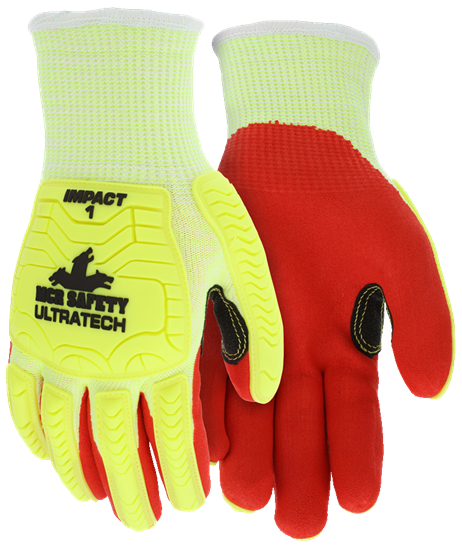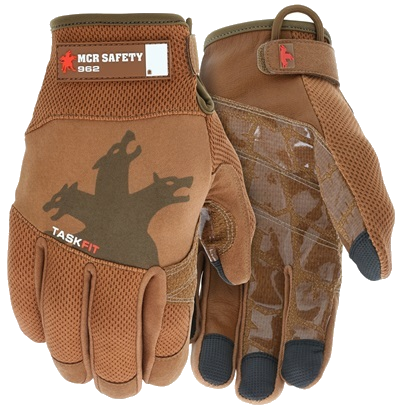Mechanics and automotive service technicians are two of the occupations with the highest employment numbers in the U.S. The Bureau of Labor Statistics (BLS) reported that, in 2016, there were 749,900 people employed as mechanics nationwide, and that number is projected to grow 6% by 2026, which is on par with the projected average growth rate across all industries (7%).

Mechanics keep our vehicles functioning properly.
Mechanics work every day to ensure that the more than 276.1 million cars registered in the United States keep running. At MCR Safety, we protect people, which means we keep the mechanics running with proper PPE protection. For an occupation that relies heavily on the use of their hands, choosing the right gloves is especially important for mechanics.
In this blog, we’re going to talk a bit about the work that mechanics do, the hazards they face, and the gloves that we offer that will help keep their hands safe while on the job.
Who Mechanics Are and What They Do
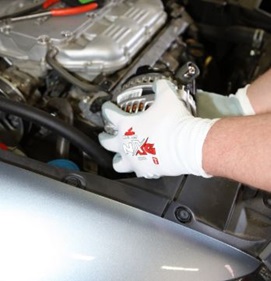
Automotive mechanics and service technicians inspect, maintain, and repair cars and light trucks. These workers typically spend a lot of time using their hands, and are often working in an enclosed vehicle where they are exposed to numerous hazards.
Mechanics engage in a variety of tasks when working on equipment, machines, and vehicles. Here are some:
 Test parts and systems to ensure that they work properly
Test parts and systems to ensure that they work properly Perform basic care and maintenance, including changing oil, checking fluid levels, and rotating tires
Perform basic care and maintenance, including changing oil, checking fluid levels, and rotating tires Repair or replace worn parts, such as brake pads, wheel bearings, and sensors
Repair or replace worn parts, such as brake pads, wheel bearings, and sensors
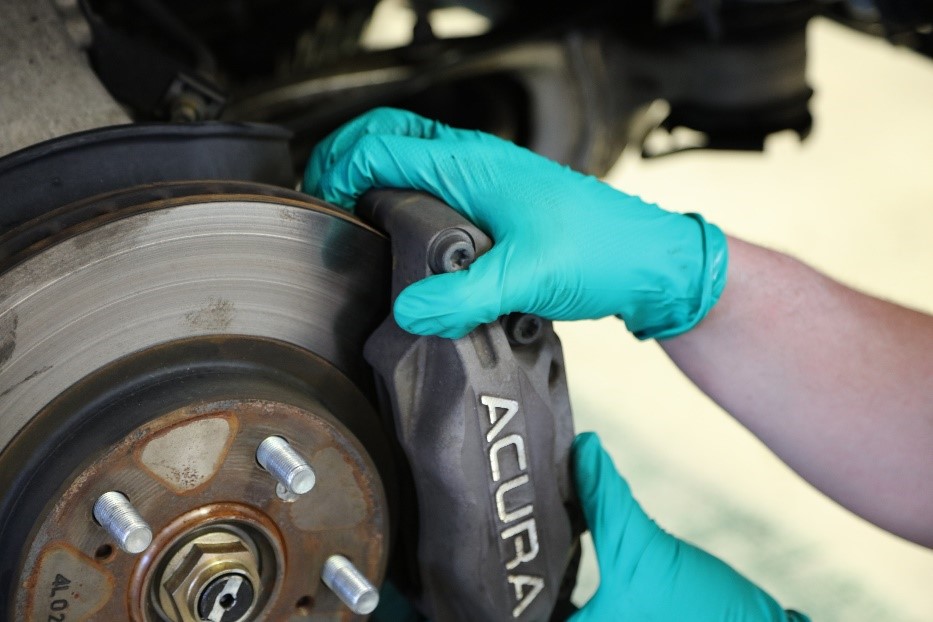
Replacing brakes with Grippaz™ disposable gloves!
 Perform repairs to manufacturer and customer specifications
Perform repairs to manufacturer and customer specifications Diagnose and explain automotive problems and repairs to clients
Diagnose and explain automotive problems and repairs to clients
The average car has about 30,000 individual parts, and mechanics come into contact with most of them at one point or another. Being a mechanic requires a great deal of skill at correctly manipulating and seating car parts (down to the tiniest screw) without always being able to see them directly, while positioned in odd or uncomfortable angles.
Common Injuries
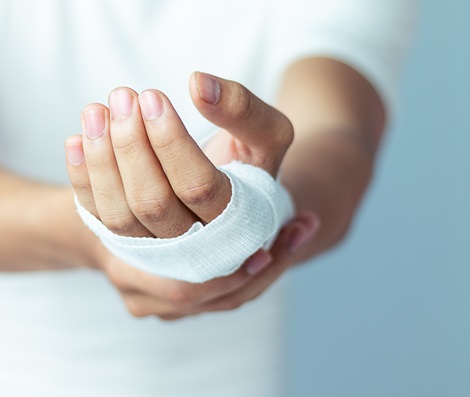
The BLS reports that mechanics are more likely than the average worker to be injured on the job. In fact, as we reported in the Extreme Cut Hazards blog, mechanics experience the 8th most cuts, lacerations, and puncture incidents. Their interactions with equipment, moving parts, and heavy car materials put them at an increased risk of injury.
Mechanics also experience a variety of nonfatal injuries on the job. Sprains and strains from moving parts or working in cramped or awkward positions are common. Also common are hand injuries, as mechanics use their hands in a variety of hazardous conditions. Thus, it is imperative that mechanics have gloves that protect their hands while also allowing them to safely perform their work, able to easily feel, grip, and maneuver materials and parts.
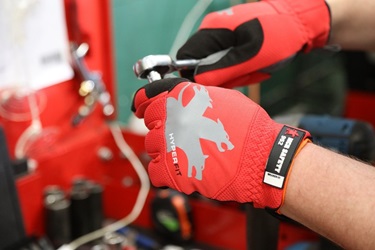
Feel and grip are especially important for mechanics. 952 Hyperfit shown in this image.
MCR Safety is leading the way in the production of gloves that check all of these boxes by keeping mechanics’ hands safe while allowing them to perform their jobs effectively. We cover the top 5 glove options for mechanics, after we cover the primary hazards they face.
Hazards That Mechanics Face
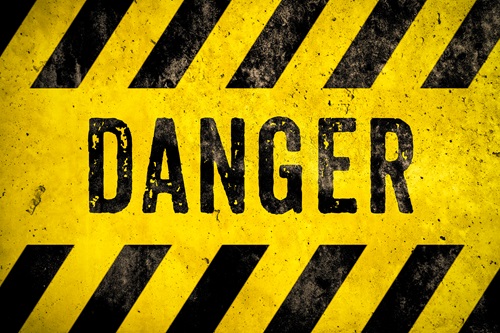
Mechanics face a number of hazards on a daily basis, including:
 Abrasive handling (parts and materials)
Abrasive handling (parts and materials) Arm injuries from reaching, stretching, or twisting
Arm injuries from reaching, stretching, or twisting Caustic chemicals
Caustic chemicals
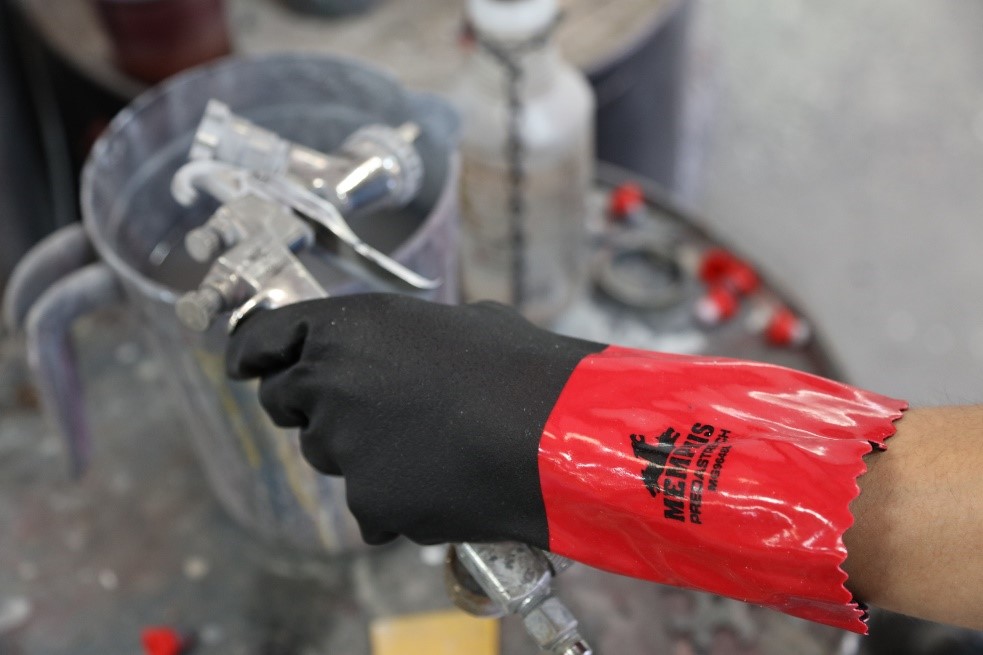
Chemicals are constant concern for mechanics. MG9648 offers mechanics excellent sense-of-touch and chemical resistance.
 Cuts to hands and arms
Cuts to hands and arms Falling objects
Falling objects Eye injury from sprayed or splashed chemicals, or flying debris from tasks involving welding or grinding
Eye injury from sprayed or splashed chemicals, or flying debris from tasks involving welding or grinding Electrocution
Electrocution Heat burns and touching hot objects
Heat burns and touching hot objects Heavy equipment, causing potential crush injuries
Heavy equipment, causing potential crush injuries  Impeded sense of touch
Impeded sense of touch
MCR Safety’s Top Mechanic Gloves

To help keep mechanics’ hands protected from the hazards faced in this industry, MCR Safety lists our top 5 glove options below. To keep your mechanic hands safe, consider these choices:
Your Mechanic Glove #1
Grippaz Nitrile Disposable Gloves
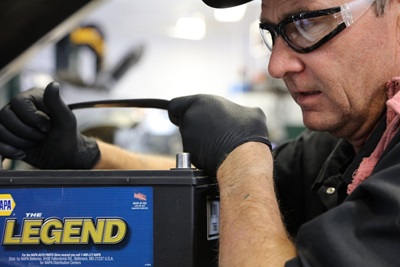
Nitrile disposable gloves are a mechanic’s best friend due to the polymer’s abrasive properties, puncture-resistance, and its ability to provide grip even in oily environments. These gloves also provide protection from continuously having to spend time washing your hands.
Grippaz™ gloves are nitrile disposable gloves that offer the wearer a unique fish-scale pattern, providing unsurpassed traction grip, both on the inside and outside of the glove. The pattern is raised, allowing for less hand slippage when holding oily parts. This raised grip is useful in a wide variety of applications, including the ones that mechanics complete every day.
O*NET reports that in a survey of automotive master mechanics, 99% of respondents said that contaminants are an issue they deal with every day. Grippaz™ disposable gloves can protect your hands from contaminants so that you can focus on getting every job done right. Their 6 mil thickness ensures they don’t tear easily and will stand up to tough jobs.
Here are some applications where mechanics would find this glove beneficial to wear:
 Keeping oil/grime out of fingernails when working on a car engine
Keeping oil/grime out of fingernails when working on a car engine Protecting against contamination from paint during the painting process
Protecting against contamination from paint during the painting process Preventing blackened creases on hands during oil changes
Preventing blackened creases on hands during oil changes
We carry six different versions of Grippaz™ gloves. Click the image below for additional information.
Our best nitrile gloves for mechanics
Your Mechanic Glove #2
Hyperfit
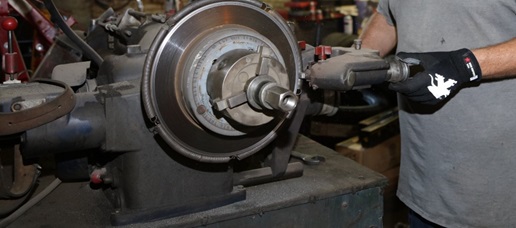
We’ve upgraded our popular multitask glove line with a new super-stretch material. Gloves featuring Hyperfit technology provide wearers with a snug fit that also keeps hands cool and comfortable. All of our Hyperfit gloves feature a synthetic leather palm and a super-stretch knuckle, offering exceptional flexibility, a slip-on cuff, and reinforced thumb crotch for maximum comfort and wear. They are also touch-screen friendly. With their long-lasting tough material in a design that offers all-day comfort, these gloves are ready for the tough work mechanics face.
Here are some applications where mechanics would find this glove beneficial to wear:
 Handling abrasive car parts
Handling abrasive car parts Picking up tires and using pneumatic gunsHandling tools for vehicle repair.
Picking up tires and using pneumatic gunsHandling tools for vehicle repair.
Your Mechanic Glove #3
MCR Safety’s 18-Gauge Gloves
As we discussed in our Automotive Featherlight Styles blog, all of our 18-gauge gloves have eighteen stitches per knitted inch. When considering a glove’s gauge, keep in mind that the higher the gauge number, the tighter the knit and the more stitches per inch. For mechanics, a higher gauge glove equals better productivity and increased hand dexterity for grabbing parts, tools, and wires.
Because of the hazards mechanics face, it’s no surprise that 95% of them will tell you that one of their top concerns is having control over their work at all times. Another top priority is control precision, the ability to quickly and repeatedly adjust the controls of a machine or a vehicle to exact positions. Check out our new PDF that highlights all of our 18-gauge gloves to find the ones that are right for you.
9388NF - Black Mechanics Gloves with cut-resistance
Mechanics handle a lot of metal, so gloves have to be tough! In fact, mechanics rank #8 overall for the highest cut, laceration, and puncture incident rates, as reported by the BLS. The 9388NF provides the cut protection mechanics require, along with excellent feel and hand movement.
Second, due to the black color and black nitrile coating, this glove naturally hides dirt and oil, which is ideal for the mechanic handling oily parts. Plus, it provides mechanics all-day comfort by radiating heat away from the hands, keeping hands cool. Mechanics work in some hot environments, and this glove offers the perfect solution. The long-lasting, stronger-than-steel Diamond Technology fibers offer tactile performance and breathability for both small and large jobs.
Here are some applications where mechanics would find this glove beneficial to wear:
 Picking up small parts, such as screws and ball-bearings, since the dexterity of the glove means mechanics do not have to remove gloves to work effectively.
Picking up small parts, such as screws and ball-bearings, since the dexterity of the glove means mechanics do not have to remove gloves to work effectively.  Pulling at sharp, rusty, broken pieces of metal. While these tasks will wear out most other gloves, this glove is reinforced in key wear areas and will continue to perform!
Pulling at sharp, rusty, broken pieces of metal. While these tasks will wear out most other gloves, this glove is reinforced in key wear areas and will continue to perform! Sharp edge cut protection.
Sharp edge cut protection.
Your Mechanic Glove #4
UT1950 Black Reinforced Impact Gloves
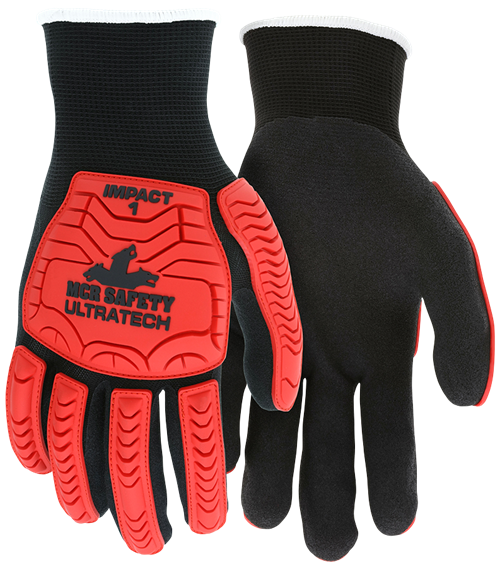
Mechanics surveyed by O*NET mentioned the necessity of having high levels of dexterity in their gloves. We've designed the UT1950 with this need in mind. Any mechanic looking for top-quality hand protection in a glove that is comfortable, with high dexterity, abrasion and impact protection should consider this glove.
Here are some applications where mechanics would find this glove beneficial to wear:
 Changing out rust-covered rotors, pads, and calibers, these gloves provide protection from abrasions.
Changing out rust-covered rotors, pads, and calibers, these gloves provide protection from abrasions. Easily being able to handle tools
Easily being able to handle tools
Your Mechanic Glove #5
Impact- and Cut-Resistant Gloves
The Bureau of Labor Statistics (BLS) highlights handling heavy automotive parts and equipment as one of the top causes of injury for mechanics. We’ve designed a wide range of impact-resistant gloves with that hazard in mind.
The PD4900 provides A9 cut-resistance, the highest level possible, and back-of-hand impact protection. The MaxGrid™ reinforced palm offers excellent grip in dry, wet, and oily conditions.
Here are some applications where mechanics would find this glove beneficial to wear:
 Working in confined spaces, these gloves protect against skinned knuckles.
Working in confined spaces, these gloves protect against skinned knuckles.  Handling tools or parts
Handling tools or parts
Another cut and impact option for mechanics working on heavier equipment is our MC503. This glove also features DSM Dyneema® Diamond Technology. Goatskin provides mechanics with a natural lanolin content that keeps gloves and hands soft, while providing ANSI A4 cut-resistance and ANSI 4 abrasion-resistance.
Other Top Work Gloves
Liquid Gloves -
Latex and Rubber Gloves are perfect gloves, as long as the mechanic doesn't suffer from latex allergies. They provide excellent elasticity, which is a definite need. Consider wearing our 5250, 5090E, and 5048.
Warm Mechanics Gloves -
Our UT1956 provides wearers with a acrylic liner, perfect for cold winter days.
Long Arm Protection -
Any mechanic should consider cut-resistant sleeves. We've written an entire article on the subject.
Up-and-Coming Top Glove
We’re excited to tell you about our new 962 gloves! These innovative gloves offer a goatskin leather palm, with an added unique/rope channel reinforcement. This design ensures premier grip and longevity. A silicone tire tread pattern in the palm and MAXGRID™ fingertips allow for an industry-leading grip. The gloves have an A6 ANSI abrasion score, so you can be sure that your hands will be protected in even the toughest situations.
Common Questions

 What size mechanics gloves should I use?
What size mechanics gloves should I use?
You will want to check out our article on glove sizing to find your correct hand measurements.
 Should a mechanic wear gloves?
Should a mechanic wear gloves?
Absolutely, as we stated above, mechanics are likely to experience hand injuries. They experience the 8th most cuts, lacerations, and puncture incidents.
 Is latex in mechanics gloves?
Is latex in mechanics gloves?
It depends on the material and polymer used on the glove. Our liquid gloves mentioned above are latex, however our other disposable gloves mentioned above are made of nitrile.
 What are some good bike mechanic gloves?
What are some good bike mechanic gloves?
Our gloves are designed for industrial markets. However, due to the high-quality of materials used, many outdoor sports enthusiasts like wearing our gloves. Our UT1950 is popular due to its high flexibility and impact protection.
The Mechanic’s Tool Set

Every mechanic has a great tool set. This tool set should include dependable gloves, like the ones we’ve mentioned above, and the right safety glasses. The correct PPE can protect mechanics against the risks and hazards they face on the job daily.
We welcome any comments, feedback, or suggestions for how we can best protect people at work.
For over 45 years, MCR Safety has proven to be a world leader in gloves, glasses, and garments. Whether it’s on the shop floor, an oil rig, or a construction site, we are there providing solutions to workplace hazards. It’s all part of our commitment to protect people.
No matter your industry, we have the personal protective equipment you need.

Learn more about MCR Safety by checking out our most recent video. For more information, browse our website, request a catalog, find a distributor, or give us a call at 800-955-6887.
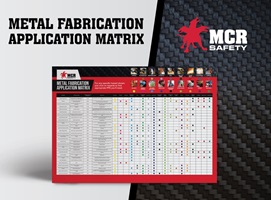
Metal Fabrication Application Matrix
Find the appropriate PPE for specific hazards with a simple easy to follow guide.
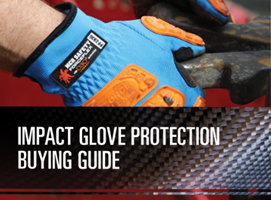
MCR Safety Impact Glove Protection Buying Guide
About the Author
Latest Articles





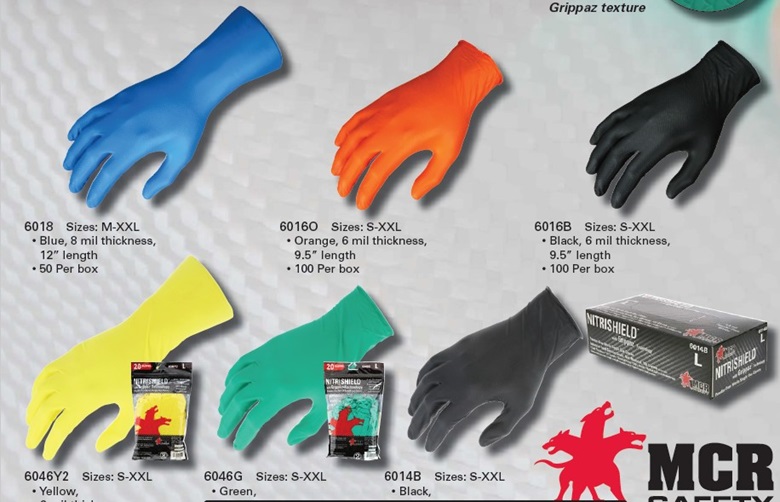

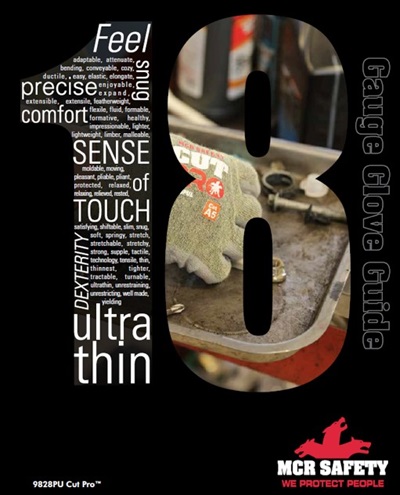
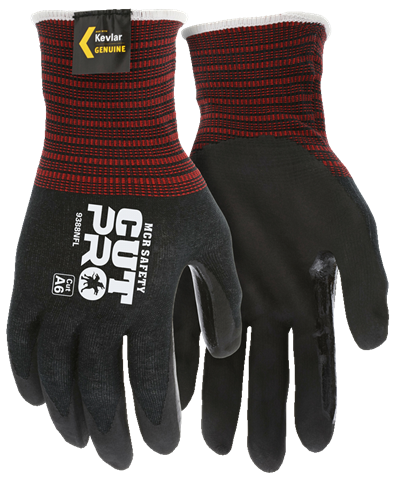
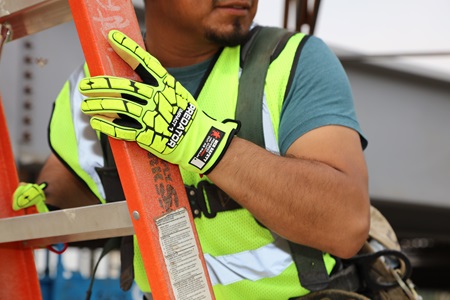
.png)
